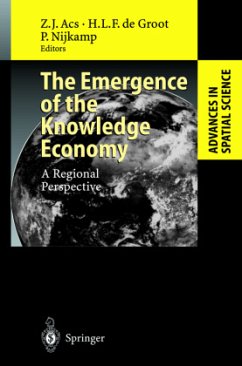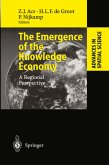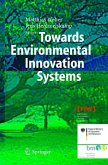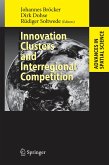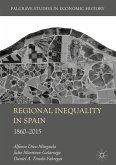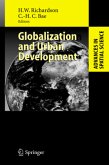Knowledge has in recent years become a key driver for growth of regions and nations. This volume empirically investigates the emergence of the knowledge economy in the late 20th century from a regional point of view. It first deals with the theoretical background for understanding the knowledge economy, with knowledge spillovers and development externalities. It then examines aspects of the relationship between knowledge inputs and innovative outputs in the information, computer and telecommunications sector (ICT) of the economy at the regional level. Case studies focusing on a wide variety of sectors, countries and regions finally illustrate important regional innovation issues.
From the reviews:
"A primary stated aim of the collection is to pull together new insights from growth theory, economic geography, and innovation theory to bear on the common question of the role of innovative knowledge creation and diffusion on differential regional growth. ... a useful and thought provoking collection ... . it is a worthy compendium adding more fuel to the quest for economic growth theories that withstand empirical testing." (Susan M. Walcott, Journal of Regional Science, Vol. 44 (2), 2004)
"A primary stated aim of the collection is to pull together new insights from growth theory, economic geography, and innovation theory to bear on the common question of the role of innovative knowledge creation and diffusion on differential regional growth. ... a useful and thought provoking collection ... . it is a worthy compendium adding more fuel to the quest for economic growth theories that withstand empirical testing." (Susan M. Walcott, Journal of Regional Science, Vol. 44 (2), 2004)

